London, Saturday 13th October 2018
National Funeral for the Unknown Cyclist
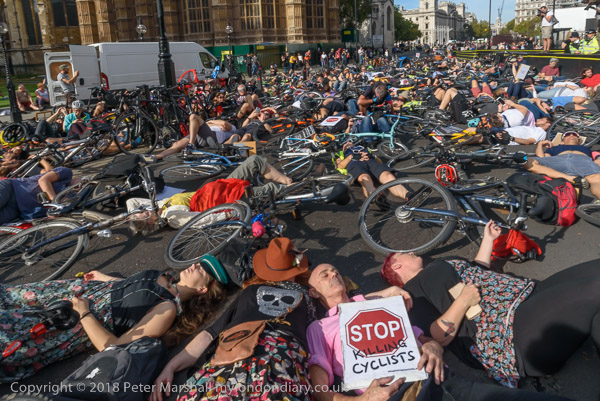
I’ve been a cyclist since my sixth birthday, when my parents bought me a second-hand two wheeler to replace the trikes I’d been on since before I could walk. By the end of the day I could ride it, if rather unsteadily, along the pavement of our street.
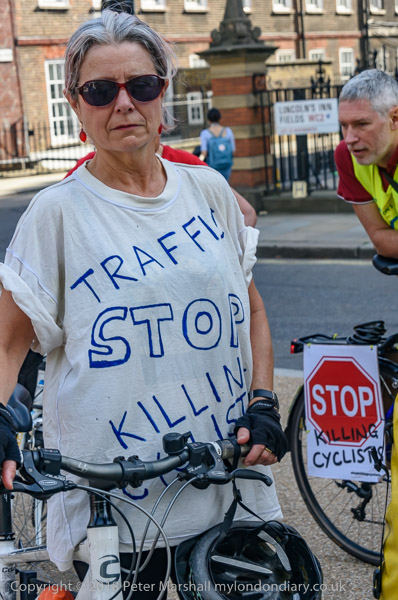
The bicycle gave kids like me a new freedom, and within a couple of years I was riding miles either on my own or with a couple of mates to play both in local parks and green spaces and further afield. We cycled away from our dusty streets into the countryside, often going along some of the busiest roads in the country, the A30, A4 and A3 out west from our grey suburbs.
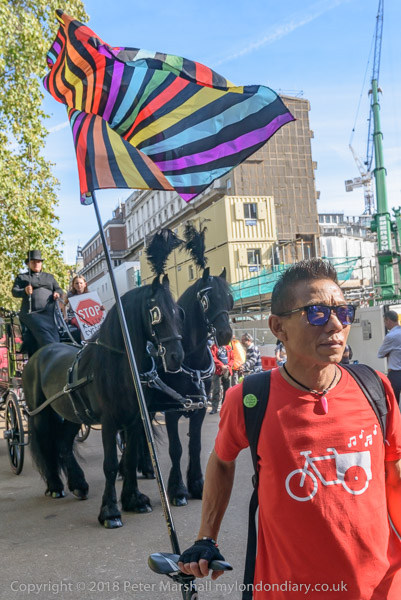
We didn’t think much about safety back then, and though traffic was heavy, vehicles were smaller and speeds were lower. Drivers were I think more considerate back then, and almost all will have been cyclists before getting behind the wheel. So I survived, though there were a few close shaves, later mainly thanks to teenage stupidity.
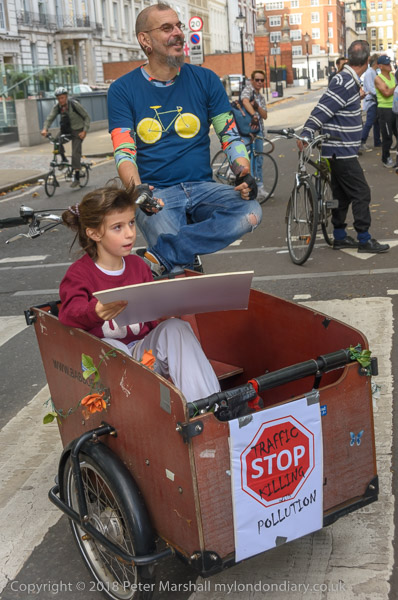
Over seventy years later I still ride a bike, though with rather larger wheels, and usually just to the local shops, but I feel less safe on the roads. I’ve been knocked off it a couple of times in the past twenty years or so, both times by drivers who were extremely apologetic and confessed they hadn’t seen me as they drove out onto a main road or came up behind me on a roundabout. I was lucky and only sustained minor cuts and bruises and the motorists paid for the repairs to my bike.
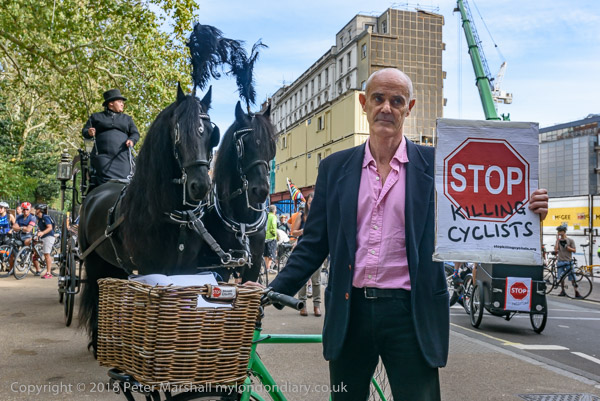
During the first Covid lockdown the roads were almost empty and I went out each weekday morning for a ten-mile ride to keep fit. But then traffic began to come back and the fumes and too many close passes put me off the roads again.
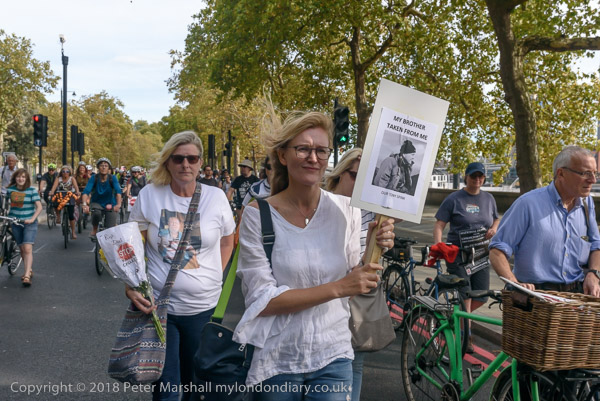
In the past few years we seem to have come out of the long era where cyclists were almost completely disregarded in terms of traffic planning (and pedestrians too) but still we are largely failing to get the kind of separate provision to make cycling more safe that we see in some European countries.
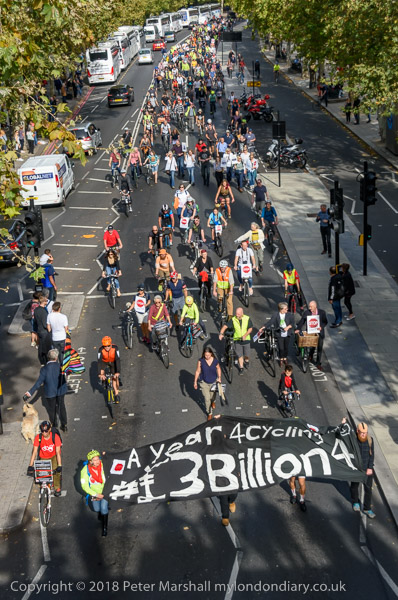
Some councils are still dementedly anti-cyclist, and too many drivers see cyclists as an impediment to their progress rather than as fellow road-users. Some still accelerate past me then cut in across me to turn left at junctions, some pass where there is clearly not enough room to do so safely and some even shout insults as the drive past.
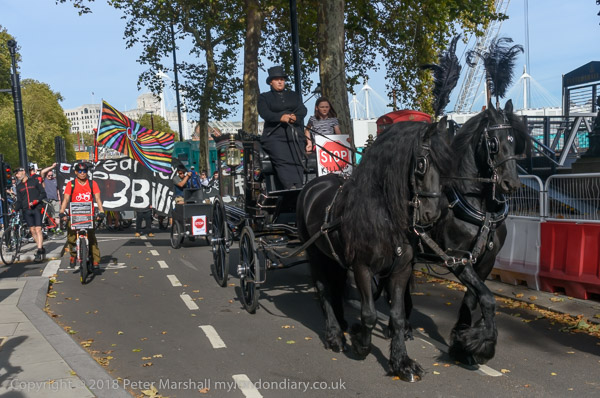
Cycling is good for individual health and for the health system as a whole, though less than it should be because of the pollution from traffic. By reducing car journeys it is good for the environment too, and good for motorists as people switching to bikes cuts congestion in cities. As a country we should be spending far more to encourage it and make it safer. In particular that means more separate provision – fears over safety when bikes are on busy roads is one of the main things that stops many getting on bike, but also driver education and improvements in vehicle and road design.
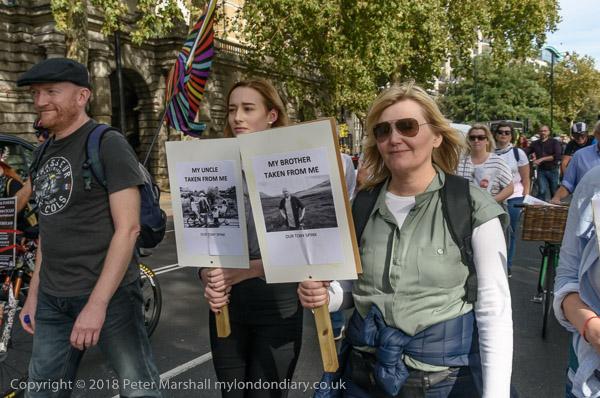
Among those at the protest were a number of families whose members had been killed on our roads, including some from Tony Spink’s family. He was killed cycling through Wakefield city centre by a lorry driver who didn’t stop, dragging him under his lorry as he hung onto the windscreen wipers and thumped on the side of the truck. His mangled bike was pulled from the lorry by the driver at a layby and then dumped in bushes miles away. The driver was jailed for two years. This was an extreme case but the sentence seemed risibly short, as are many of the sentences given to drivers who kill both cyclists and pedestrians.
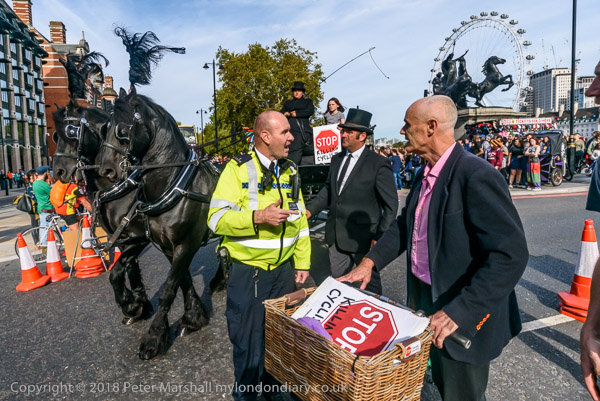
Protests by Stop Killing Cyclists such as this National Funeral for the Unknown Cyclist have publicised the problem and the organisation lobbies for £3 billion a year to be invested in a national protected cycling network and for urgent action to reduce the toxic air pollution from diesel and petrol vehicles which kills tens of thousands of people every year, and disables hundreds of thousands.
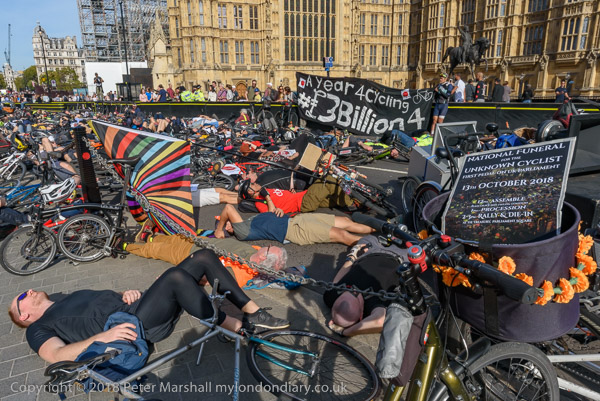
Several hundred protesters on bicycles met in Lincolns Inn Fields before riding in a funeral procession behind a horse-drawn hearse to Westminster where instead of following the route the police wanted across Westminster Bridge they turned into Parliament Square and staged a 10 minute die-in before proceeding to a rally in Smith Square.
National Funeral for the Unknown Cyclist
Rally opposes Islamophobic DFLA – Parliament St
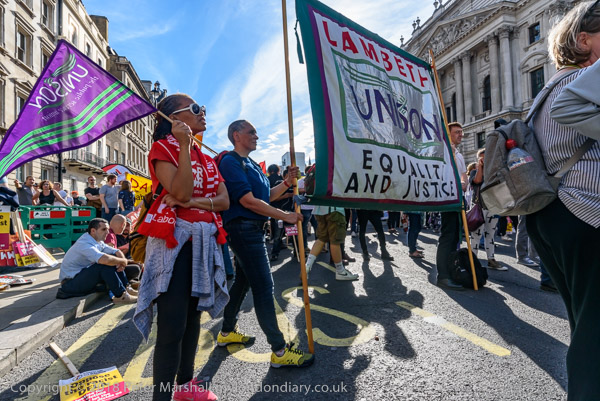
I left the National Funeral for the Unknown Cyclist as it went on to Smith Square and walked up Parliament Street to a rally opposing the racist, Islamophobic Democratic Football Lads Alliance who were ending their march with a rally at Downing St.
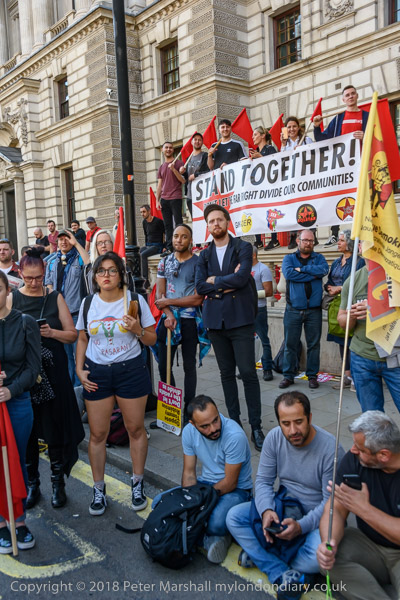
Stand Up To Racism and Unite Against Fascism had organise a rally here, but the DFLA marchers had not arrived at the expected time. Far fewer than expected had turned up for their march, and it had been blocked for some time by more militant anti-fascist protesters on the route.
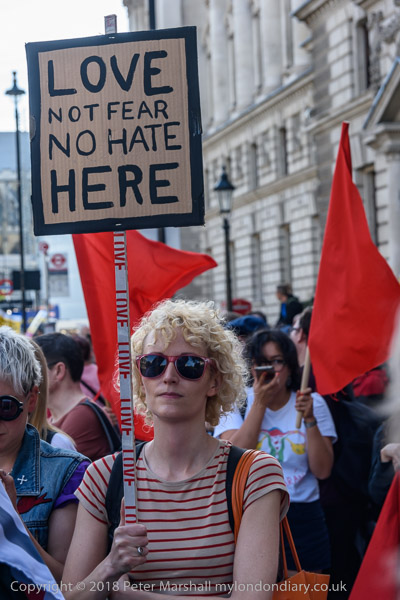
Some of the DFLA had given up and gone to pubs along the route, but a few had walked across St James’s Park to Parliament Square from where they shouted for a while at the SUTR/UAF protest as police stopped them from getting closer, and after a while persuaded them to move away. The number who finally arrived for their rally was rather small and it didn’t seem worthwhile to take a long walk around the police barricade to try to photograph them.
Rally opposes Islamophobic DFLA
Ahwazi protest Iranian repression – Parliament Square
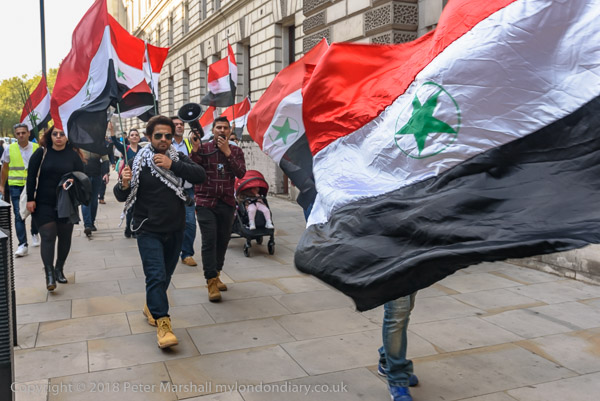
Instead I went back to Parliament Square where I met Ahwazi protesters marching into the square carrying Ahwaz independence flags. They protested noisily facing the Houses of Parliament calling for Iran to end the repression of their people and to get out of their land.
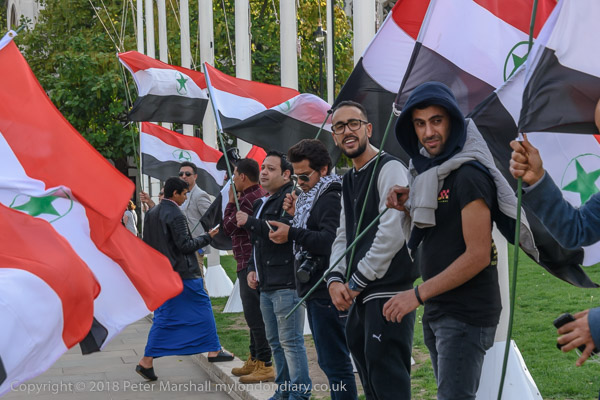
Al Ahwaz, the oil-rich northern side of the Persian Gulf was under British control until 1925, with the population enjoying considerable autonomy as Arabistan. The emirate was dissolved by the Persian regime following a rebellion in 1924 and the area occupied by Persian troops, and a process of ‘Persianisation’ imposed on the area, attempting to destroy its Arab culture. They renamed the area Khuzestan.
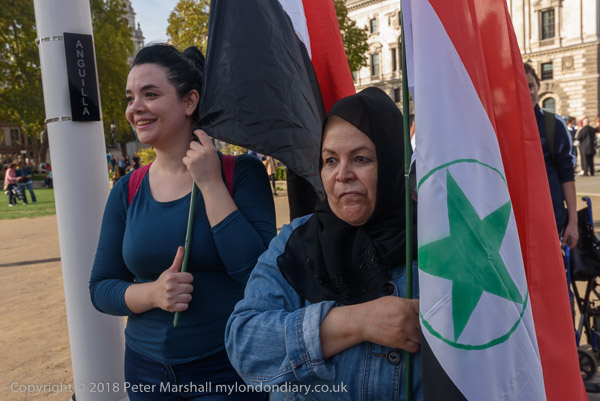
Discrimination against the Ahwazi increased under the Islamic Regime, impoverishing the area which contains much of Iran’s natural resources and there has been widespread civil unrest since 2015, with massive protests in April 2018 on the anniversary of the 2011 Ahwaz Day of Rage, itself an anniversary of the 2005 unrest. In September 2018 militants from the
Ahwaz National Resistance attacked an Iranian Revolutionary Guard parade in the city of Ahvaz, killing 25 soldiers and civilians.
Ahwazi protest Iranian repression